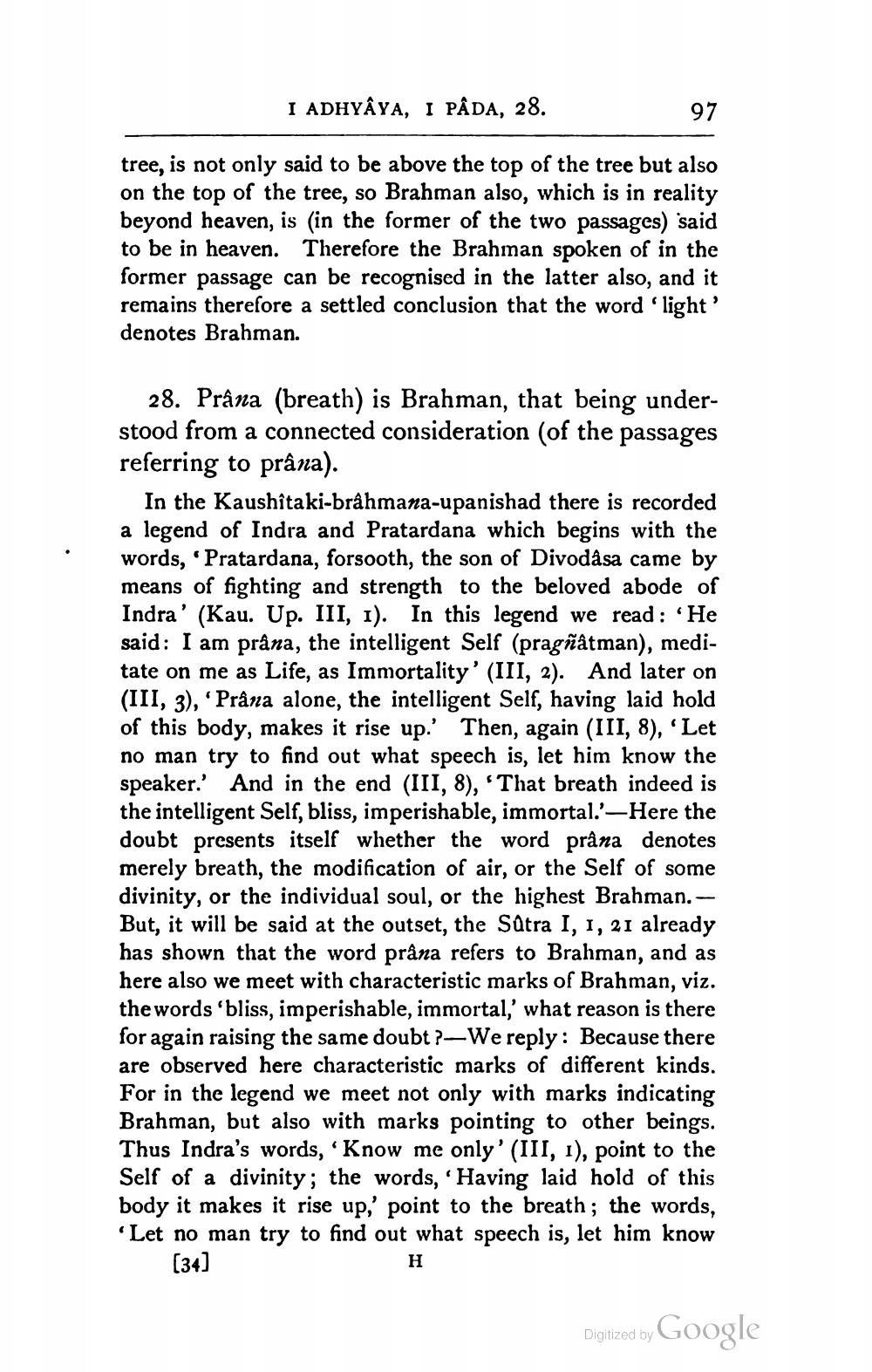________________
I ADHYAYA, I PÂDA, 28.
tree, is not only said to be above the top of the tree but also on the top of the tree, so Brahman also, which is in reality beyond heaven, is (in the former of the two passages) said to be in heaven. Therefore the Brahman spoken of in the former passage can be recognised in the latter also, and it remains therefore a settled conclusion that the word 'light' denotes Brahman.
97
28. Prâna (breath) is Brahman, that being understood from a connected consideration (of the passages referring to prâna).
In the Kaushîtaki-brâhmana-upanishad there is recorded a legend of Indra and Pratardana which begins with the words, 'Pratardana, forsooth, the son of Divodâsa came by means of fighting and strength to the beloved abode of Indra' (Kau. Up. III, 1). In this legend we read: 'He said: I am prâna, the intelligent Self (pragnâtman), meditate on me as Life, as Immortality' (III, 2). And later on (III, 3), 'Prâna alone, the intelligent Self, having laid hold of this body, makes it rise up.' Then, again (III, 8), 'Let no man try to find out what speech is, let him know the speaker.' And in the end (III, 8), 'That breath indeed is the intelligent Self, bliss, imperishable, immortal.'-Here the doubt presents itself whether the word prâna denotes merely breath, the modification of air, or the Self of some divinity, or the individual soul, or the highest Brahman.But, it will be said at the outset, the Sûtra I, 1, 21 already has shown that the word prâna refers to Brahman, and as here also we meet with characteristic marks of Brahman, viz. the words 'bliss, imperishable, immortal,' what reason is there for again raising the same doubt ?-We reply: Because there are observed here characteristic marks of different kinds. For in the legend we meet not only with marks indicating Brahman, but also with marks pointing to other beings. Thus Indra's words, 'Know me only' (III, 1), point to the Self of a divinity; the words, 'Having laid hold of this body it makes it rise up,' point to the breath; the words, 'Let no man try to find out what speech is, let him know
[34]
H
Digitized by Google




